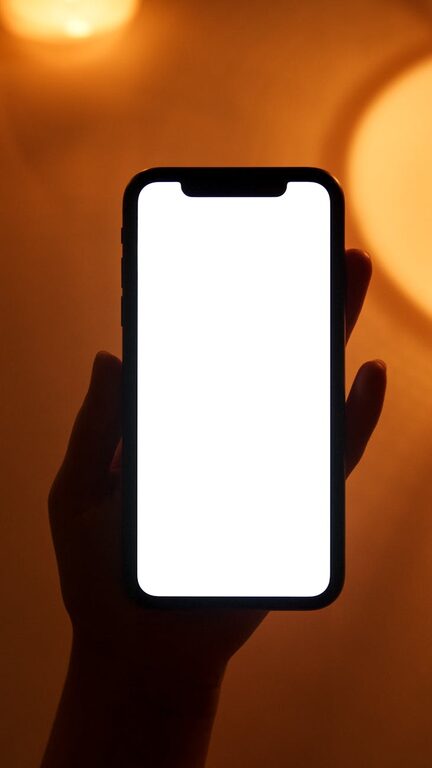In today’s digital age, smartphones have become an essential part of our daily lives. While they offer tremendous convenience, staying connected, and entertainment, excessive or unhealthy phone use can impact our well-being, focus, and relationships. Developing and maintaining healthy phone habits not only helps you regain control over your time but also improves your mental health and productivity.
This blog post will guide you through practical strategies for maintaining balanced phone usage and creating a healthier relationship with technology.
Why Healthy Phone Habits Matter
Smartphones can be incredibly useful, but overuse can lead to:
– Increased stress and anxiety
– Disrupted sleep patterns
– Reduced attention span and productivity
– Strained personal relationships
– Eye strain and physical discomfort
By cultivating mindful phone habits, you can maximize the benefits of your device while reducing these negative effects.
How to Maintain Healthy Phone Habits
1. Set Clear Usage Boundaries
Creating limits around your phone usage is key to preventing overuse:
– Designate phone-free times: For example, avoid using your phone during meals or the first hour after waking up.
– Establish phone-free zones: Keep your phone out of bedrooms or dining areas to encourage presence and reduce distractions.
– Use “Do Not Disturb” mode: Schedule this during important work or relaxation periods to minimize interruptions.
2. Track and Limit Screen Time
Most smartphones have built-in screen time tracking features that help you monitor how long and how often you use apps.
– Review your daily phone usage: Identify apps or activities where you spend excessive time.
– Set app limits: Restrict your time on social media or gaming apps with built-in timers to avoid mindless scrolling.
– Schedule regular breaks: Take short breaks from your screen every hour to give your eyes and mind a rest.
3. Turn Off Non-Essential Notifications
Constant notifications can fragment your attention and increase stress.
– Review notification settings: Disable alerts from apps that aren’t urgent or important.
– Use silent or vibration modes: This reduces disruption without missing vital calls or messages.
– Batch check notifications: Instead of reacting to every ping, dedicate specific times to check your phone.
4. Practice Mindful Phone Use
Being aware of how and why you use your phone can help you avoid addictive habits.
– Ask yourself why you’re picking up your phone: Is it out of boredom, habit, or necessity?
– Engage fully in the activity: If reading, watching, or messaging, focus only on that rather than multitasking.
– Avoid using your phone as a boredom filler: Try other activities like reading a book, going for a walk, or spending time with loved ones.
5. Create a Relaxing Pre-Sleep Routine
Using phones before bed can interfere with your natural sleep cycle due to blue light emission.
– Avoid screens 30–60 minutes before sleeping: Instead, engage in calming activities like meditation or reading a physical book.
– Use “Night Shift” or blue light filter: If you need to use your phone late, these features reduce blue light exposure.
– Charge your phone outside the bedroom: This prevents temptation to check your device in the middle of the night.
6. Use Your Phone to Support Healthy Habits
Smartphones can be powerful tools to encourage positive routines:
– Install well-being apps: Meditation, fitness trackers, or reminders to take breaks can promote balance.
– Use calendar and to-do apps: Organize your day and reduce stress by managing tasks effectively.
– Connect meaningfully: Regularly stay in touch with friends and family through calls or messaging rather than endless social media browsing.
7. Regularly Reflect and Adjust Your Habits
Periodically check your phone habits and adjust based on what you learn.
– Review screen time reports: Notice trends or spikes in usage and identify any triggers.
– Set new goals: Maybe aim to reduce social media use or increase offline time gradually.
– Be patient and flexible: Changing habits takes time; celebrate progress and adapt strategies to find what works best.
Tools That Can Help
Here are a few apps and features that support healthy phone habits:
– Screen Time (iOS) / Digital Wellbeing (Android): Built-in phone usage tracking.
– Forest: Helps you stay focused by planting virtual trees while avoiding phone use.
– Moment: Tracks your daily screen time and encourages phone-free moments.
– Focus@Will: Provides music designed to improve concentration and minimize distractions.
Conclusion
Maintaining healthy phone habits is essential for preserving your mental health, productivity, and relationships. By setting boundaries, tracking usage, minimizing distractions, and practicing mindful phone use, you can strike a healthy balance between leveraging technology’s benefits and living a fulfilling, present life.
Remember: your phone is a tool to support your goals—not a source of stress or distraction. With a few simple changes and consistency, you can enjoy a healthier, more balanced digital lifestyle. Start today for a more focused and peaceful tomorrow!

